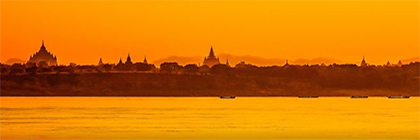The York Centre for Asian Research (YCAR) recently received a $500,000 donation from Canadian philanthropist, author and business woman Vivienne Poy to create an endowment to support student engagement in Hakka research and scholarship. This generous gift plants a seed for the growth of a Hakka Scholars Network to develop Hakka research and scholarship at York University and promote this scholarship in Canada and internationally.
“This is the first Hakka Studies initiative outside of Asia and further stimulates the study of Asia and Asian Diaspora that is at once cross-regional and local in its engagement with Asian Canadian communities,” said Abidin Kusno, YCAR director.

An accomplished entrepreneur, fashion designer, historian and author, Poy was the first Canadian of Asian descent to be appointed to the Senate of Canada (1998–2012). She had been supportive of YCAR’s initiatives with the establishment of the Vivienne Poy Asian Research Award, and donated the proceeds of her book Profit, Victory and Sharpness: The Lees of Hong Kong to YCAR, in support of graduate student research on Asia and the Asian Diaspora.
The reason for choosing to support students engaging with Hakka Research and scholarship, according to Poy, is that Hakka is a subgroup of the Han Chinese with a distinct culture.
“Their historic villages were circular fortresses built with very thick walls for defence. Hakka women are known for their unbound feet, strength and resilience,” said Poy. “The Hakkas have contributed globally over centuries, and many have risen to prominence at home and in their countries of adoption, a fact that is not widely known. As a Hakka descendant on my mother’s side, it is of great interest to me to support scholarly research on this group.”
Poy kicked off the initiative with the aspiration that it will soon develop into a multi–faceted program. As students represent the future, she decided to establish the Vivienne Poy Hakka Graduate Research Award as part of her donation.
“The annual award will encourage York’s graduate students to conduct research on topic(s) related to Hakka cultures, histories and geographies anywhere in the world,” said Kusno. The inaugural award will be given out in the Fall 2020 term.
Together with the Faculty of Liberal Arts & Professional Studies, YCAR will launch the Hakka Scholars Network with an event this fall. The network also has an ambitious plan for eight research and teaching initiatives that YCAR and its York-based and external partners, hope to develop incrementally over the next 10 years.
“The Faculty of Liberal Arts & Professional Studies is delighted to support the establishment of Hakka Scholars Network Fund at YCAR,” said Lily Cho, associate dean, Global & Community Engagement for the Faculty. “We know how important it is to prepare our students for the global economy by offering them a chance to experience the world. This fund will be crucial to opening up our undergraduate student experience to complexities and richness of Hakka culture, identity, and history. The Hakka Scholars Network Fund illuminates a world of diasporic culture and connection that builds on York’s long-standing commitment to Hakka communities.”
Over the next two years, a committee comprised of York and external members will develop a summer study abroad course, which aims to bring York undergraduate-level students to a part of the world where they will learn and experience aspects of Hakka cultures, histories and geographies. This course, which is planned to be first held in Summer 2022, will include field study to explore specific locales where students will develop community-based research projects and present them in a conference or an exhibit.
The inaugural Hakka symposium will be held in 2022 to bring together researchers focusing on Hakka studies to share the latest knowledge and research and grow the academic field. In the longer term, the Hakka Scholars Network Committee will be seeking support to establish a Chair in Hakka Studies as well as a funded visiting scholar opportunity, a language and cultural training program, an undergraduate scholarship for students interested in Hakka studies as well as a virtual archive of Hakka diaspora.
Although Hakka studies at York may be in a nascent phase, there is a long association between the University and Hakka scholars and community members. The first Toronto Hakka Conference was held at York University in 2000 and YCAR will co-host the sixth edition, which will take place on Keele campus in July 2021 (rescheduled from 2020 due to COVID-19).
According to Keith Lowe, co-founder of the Toronto Hakka Conference and member of YCAR’s External Advisory Council, “The donation from Dr. Poy marks a new growth of the Toronto Hakka Conference, especially in its engagement with the University since the first conference in 2000.”




 The Writing Prizes are open to all kinds of writing (except creative writing) from undergraduate students enrolled in LA&PS courses, including case studies, administrative/executive reports, reviews of all kinds, non-fiction prose and formal essays. There are five categories: first through fourth year and also Undergraduate Thesis/Major Research Project.
The Writing Prizes are open to all kinds of writing (except creative writing) from undergraduate students enrolled in LA&PS courses, including case studies, administrative/executive reports, reviews of all kinds, non-fiction prose and formal essays. There are five categories: first through fourth year and also Undergraduate Thesis/Major Research Project.


















![Poetic Justice by [Arthur Haberman]](https://m.media-amazon.com/images/I/51-HNoTNiiL.jpg) Poetic Justice by Arthur Haberman
Poetic Justice by Arthur Haberman The Human Variable by Chris Racknor
The Human Variable by Chris Racknor




